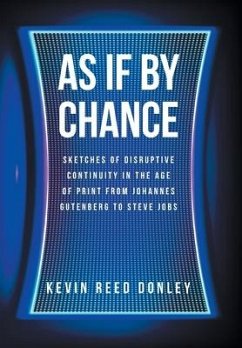The age of print was begun by Johannes Gutenberg in 1440 in Mainz, Germany. His invention of the mechanized and mass production of print replaced the previous handwriting of the scribes and was a transformative achievement. It was both the product of and a catalyst for far-reaching intellectual, social, and political changes that began during the Renaissance and continued for centuries right up to the present. The age of electronic media was begun by Steve Jobs in 1985 in Cupertino, California. His integration of the elements of desktop publishing--personal computer, page-layout software, page-description language, and laser printer--replaced the previous photomechanical processes of printing and was a transformative achievement. It was both the product of and a catalyst for the intellectual, social, and political changes during the digital revolution that will extend for generations into the future. This book discusses these two bookends in the age of print. It follows the transitions and stages of innovation in printing between the fifteenth and twenty-first centuries and shows how the inventors responsible for this progress are bound together in a chain of revolutionary technical change called disruptive continuity. While the works of Gutenberg and Jobs are separated by more than five centuries, there are striking parallels and differences between these two innovations. They both sparked the quantitative expansion of literacy and the spread of knowledge around the world. However, the emergence of electronic publishing--especially in its present-day social media forms--has brought a vast increase in the consumption of information while also heralding a qualitative transformation that places the tools of wireless and mobile multimedia publishing into the hands of billions of people on earth. Much in the same way that there was a historical lag between Gutenberg's invention and the full impact of printing on the world, so too in our own time, the long-term societal consequences of electronic publishing have yet to be realized.
Hinweis: Dieser Artikel kann nur an eine deutsche Lieferadresse ausgeliefert werden.
Hinweis: Dieser Artikel kann nur an eine deutsche Lieferadresse ausgeliefert werden.








